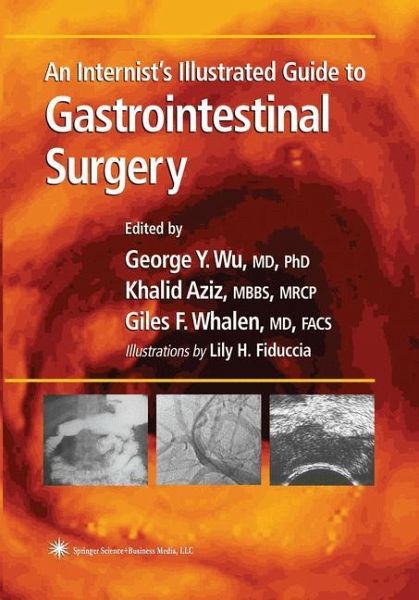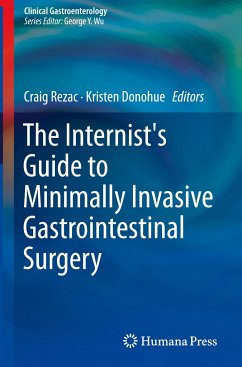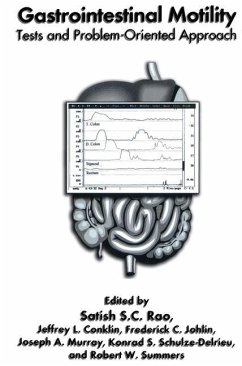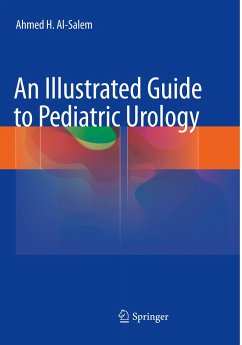
An Internist's Illustrated Guide to Gastrointestinal Surgery

PAYBACK Punkte
42 °P sammeln!
Few clinical disciplines have been transformed so dramatically by advancements in science and technology as gastrointestinal surgery. To begin with, modern ph- macology has virtually eliminated some kinds of surgery altogether. If one were to take a peek at a typical operating room schedule in a busy hospital of the 1960s, gastrectomies of one kind or another would have constituted a large block of the major surgeries. The advent of effective H2-histamine receptor antagonists and, more + + recently, the H ,K -ATPase (proton pump) inhibitors led to a precipitous decline in those procedures such...
Few clinical disciplines have been transformed so dramatically by advancements in science and technology as gastrointestinal surgery. To begin with, modern ph- macology has virtually eliminated some kinds of surgery altogether. If one were to take a peek at a typical operating room schedule in a busy hospital of the 1960s, gastrectomies of one kind or another would have constituted a large block of the major surgeries. The advent of effective H2-histamine receptor antagonists and, more + + recently, the H ,K -ATPase (proton pump) inhibitors led to a precipitous decline in those procedures such that they are rarely performed today. Exciting new approaches to treating inflammatory bowel diseases and their complications-such as fistulas- with anticytokine therapy may one day have a similarly profound effect on surgery for this condition as well. Beyond pharmaceutics, advances in imaging techniques have greatly facilitated the identification and characterization of pathology in the gastrointestinal tract in a way that would have been unimaginable only a few years ago. Just to visualize the pancreas in some way was a horrendous task until abdominal ultrasound, magnetic resonance imaging, or computer tomography made it simple. The fact that the gut is a hollow organ that can be accessed through the mouth, anus, or even through the wall of the abdomen has been fully exploited with fiberoptic endoscopes that can bend around corners with ease and permit surgery to be conducted through them.












